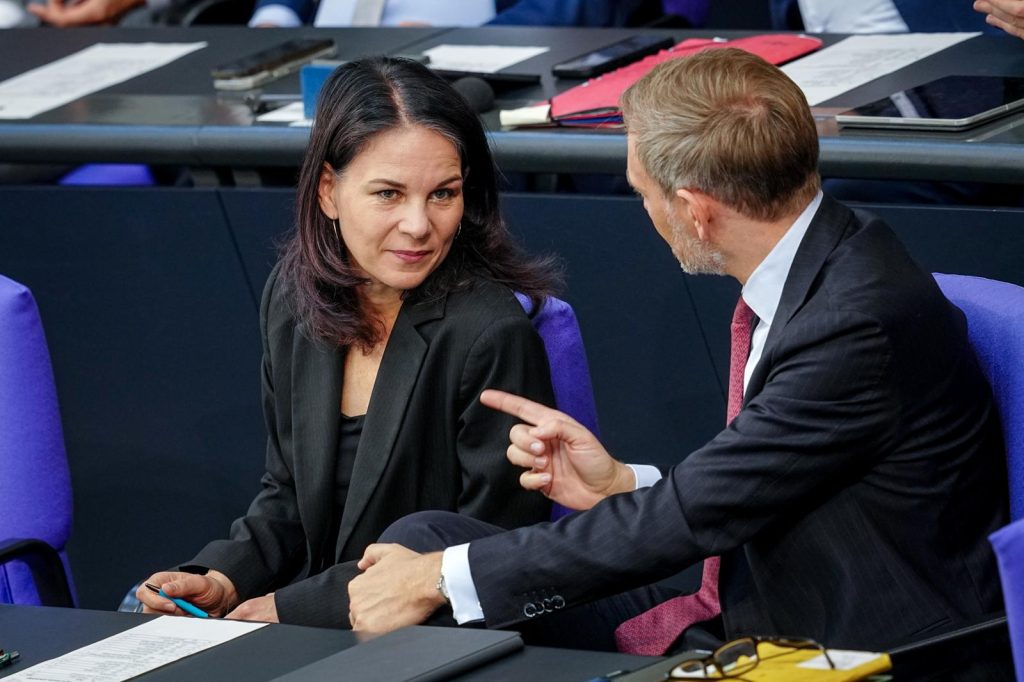Who is Germany's Annalena Baerbock?
Annalena Baerbock, as the new Foreign Minister in Germany, pursues a "value -led" foreign policy. But what values do they shape and can the Greens politician enforce them in one of the highest offices?
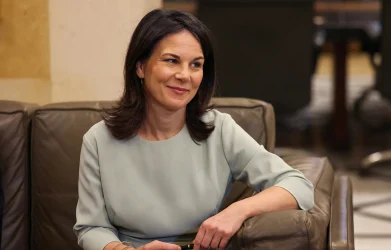
Annalena Baerbock, as the new Foreign Minister in Germany, pursues a "value -led" foreign policy. But what values do they shape and can the Greens politician enforce them in one of the highest offices?
Already at the beginning of her term, Baerbock was faced with a big challenge. Just a few weeks after taking office as the first female foreign minister in Germany, she faced the Russian Foreign Minister Sergei Lawrow, who has been in office for 18 years. Her goal was to defuse the escalating conflict in Ukraine.
Despite initial skepticism and misogynistic attacks on social media, Baerbock received almost unanimous praise from the German media after this meeting. Newspapers of various political orientations emphasized their good preparation and confident attitude in conversation with one of the longest -reigning diplomats.
Political scientist Wolfgang Schroeder from the University of Kassel said positively: “She did it well. It was surprising that she made no mistakes and was self-confident, but was not exaggerated. ”He also emphasized that Baerbock's handling of the Ukraine crisis gives the impression of close cooperation with Federal Chancellor Olaf Scholz from the Social Democrats-a fact, which is not a matter of course. “There was no attempt to challenge the Chancellery; Rather, it was an effort to find a common line with the Chancellor, ”he added.
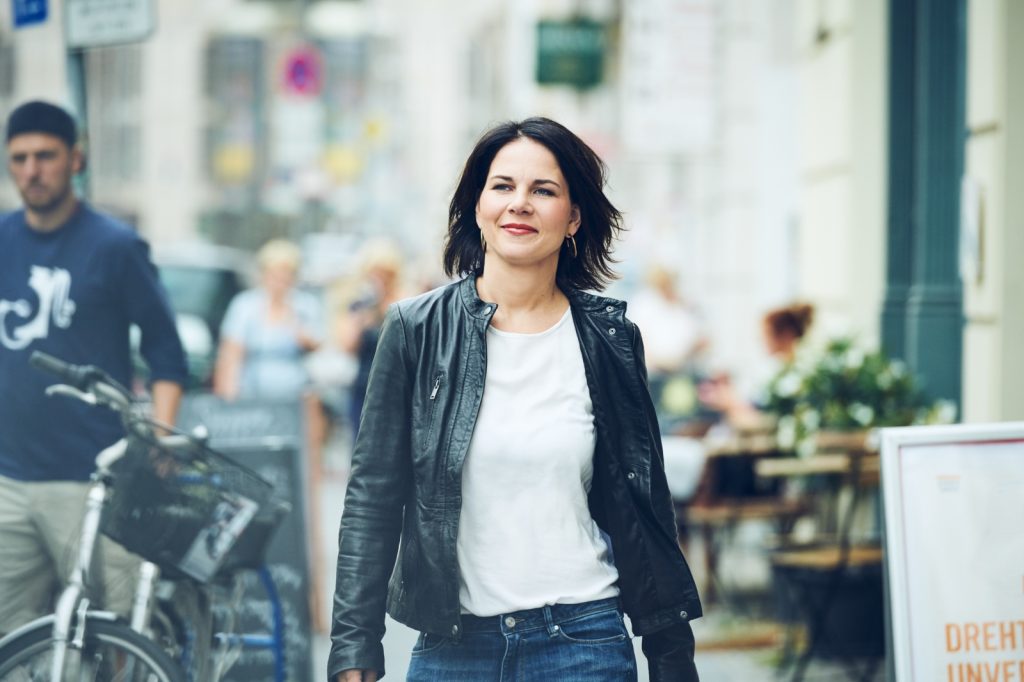
Friendly media, solid performance
Hubert Kleinert, political professor at the University of Applied Sciences in Hesse and former member of the Bundestag of the Greens, was not surprised by Baerbock's strong start. "These are favorable conditions for early successes," he said. “She is a young woman who has a certain level of vitality. It is different and I am sure that the media representation will benefit her. ”Nevertheless, he warned that positive media reports are not synonymous with the solution to a global crisis. “In the end it depends on what is actually achieved. I can't say whether the substance has come out of this, ”added Kleinert carefully.
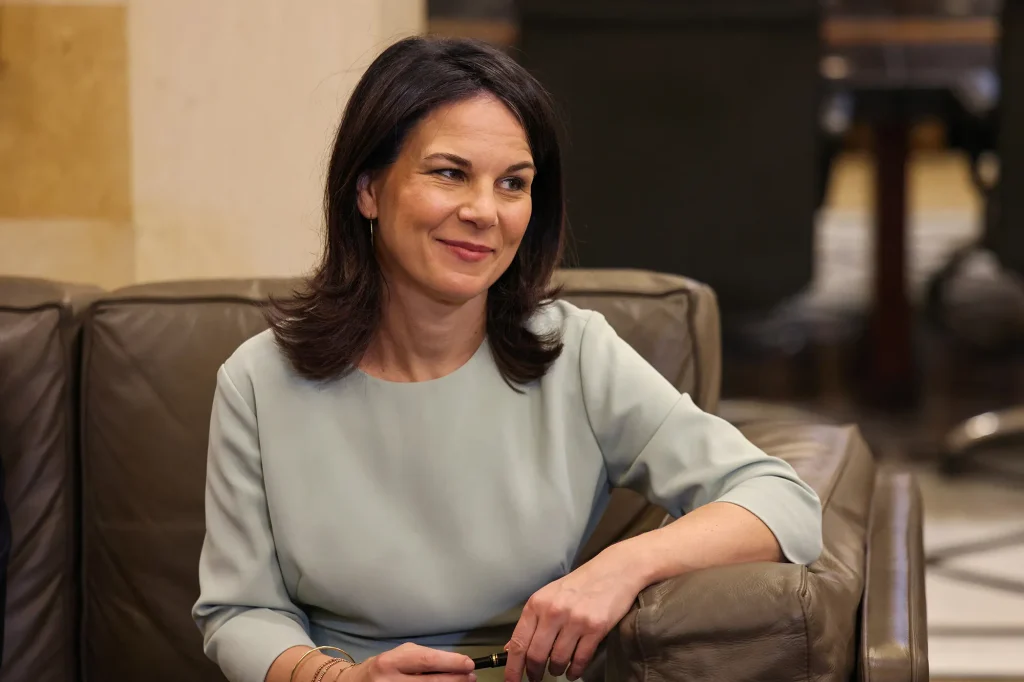
Tradition of the Green Party
The Greens have a long tradition of strongly emphasizing ethical and human rights aspects in foreign policy. Annalena Baerbock continued this course by pronouncing in the campaign debates for a “value -held foreign policy”, with clear positions on countries such as China, Belarus, Hungary and Russia. Her best-known predecessor, Joschka Fischer, also left traces when he stood out against the participation of Germany in the US-led invasion of Iraq in 2003 by frankly in questioned evidence of weapons of mass destruction.
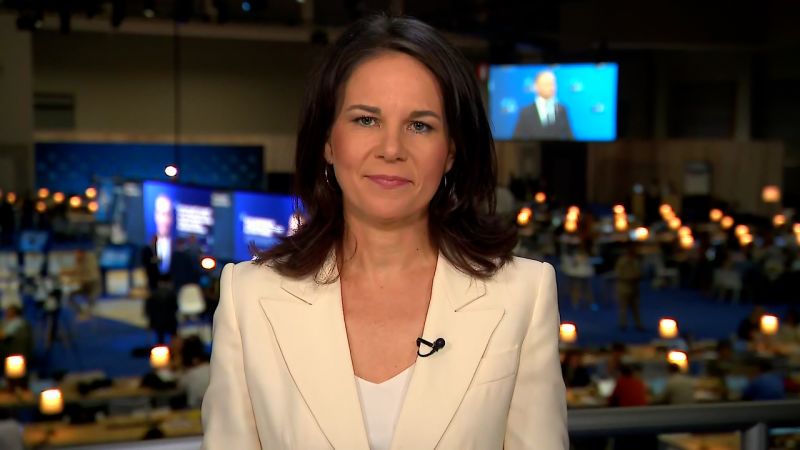
The development of the Green Party in Germany
The Greens in Germany developed from an ecological protest movement in the 1980s into an established political force.
1980: Association of protest movements
Celebrities like Joseph Beuys and Petra Kelly shaped the foundation. Kelly described the Greens as an “anti-party party”.
Unique party culture
Conferences of the Greens were characterized by heated debates and an often festive atmosphere.
Introduction to the Bundestag
In 1983, the Greens made it into the Bundestag with 5.6 %.
Joschka Fischer and government participation
Fischer became the first green minister in 1985, later foreign minister and split the party in 1999 with his support for the Kosovo mission.
After reunification
In 1993 the western Greens merged with the East German movement "Bündnis 90".
Today: Pro-Europe and diversity
The Greens represent urban, educated voters and are committed to the environment, education, social justice and diversity.
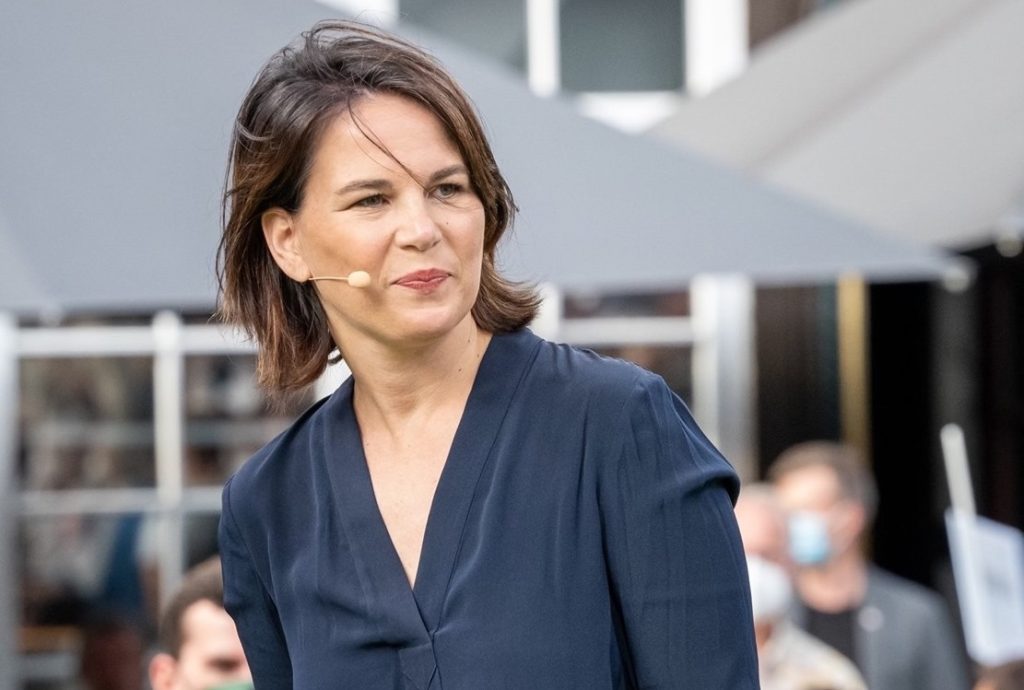
The change to the conservative
Environmental issues are no longer the exclusive privilege of the Greens, the members of which have changed from hippies to urban professionals. Winfried Kretschmann embodies this change: The conservative Green politician of the first generation became the party's first politician to become the prime minister. He joined the Christian Democrats and was re-elected twice as Prime Minister of Baden-Württemberg.
Celebrate
The co-party chairman Robert Habeck and Annalena Baerbock stand for a new pragmatism and confidence among the Greens in the 2020s. They support the "Fridays for Future" movement and address the numerous new young party members who are not interested in the ideological fights between fundamentalists and pragmatics who shaped the early debates of the Green Party.
Baerbock's climb
Annalena Baerbock's path began in the 1980s when her parents took her to anti-atomic strength demonstrations. In her biography, she says that since her youth she has been "touched by worldwide injustice", which aroused her wish to become a journalist.
She studied political science and public law in Hamburg, acquired a master in international law at the London School of Economics and began a doctorate at the Free University of Berlin, which, however, stopped in 2013 after being elected to the Bundestag.
Baerbock's academic career went in parallel to her fast political ascent. At the age of 25 she joined the Greens and became party leader in Brandenburg four years later. At the same time, she was a spokeswoman for the Working Group on Europe and board member of the European Green Party.
In her first Bundestag period, she focused on international issues and campaigned for Germany to meet its responsibility as one of the largest economies and drives the energy transition. In her second term from 2017, however, she turned to domestic questions, in particular the fight against child poverty and the support of single parents.
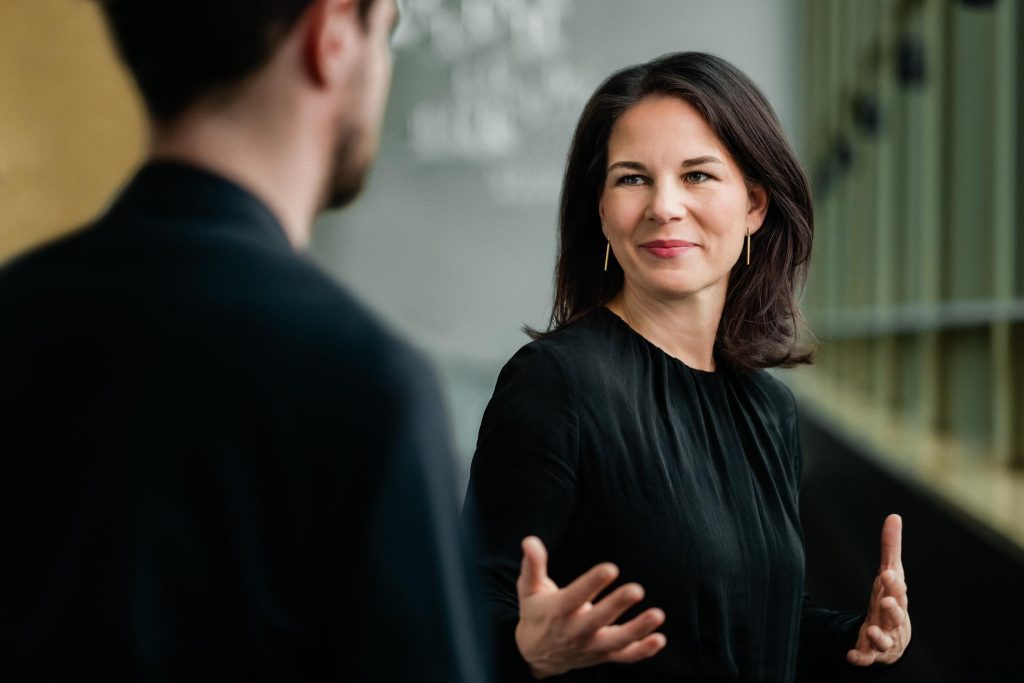
A rocky candidacy
Annalena Baerbock's political promotion reached an important milestone in April 2021 when she became the Greens' first candidate for chancellor. However, after her announcement, she was obtained from negative press and scandalous revelations such as the incorrect report of additional income and plagiarism in a hastily published book. Despite praised appearances in TV debates, their campaign did not recover, and the Greens achieved disappointing 14.8 %in the election in September. Robert Habeck became Vice Chancellor of the new coalition government in accordance with her agreement.
Re -emergence
After this difficult phase, Baerbock is now focusing on her new tasks. Gustav Gressel from the ECFR believes that her inexperience is not an obstacle. He does not see the ministers as technocrats, but as leaders who have to build teams.
How green can a green foreign minister be?
Baerbock emphasizes that her role is crucial in the fight against the climate crisis and Germany needs active international foreign policy. Instead of striving for unrealistic global solutions, she pleads for bilateral cooperation with countries that are willing to switch their industries to CO2 neutrality. Gressel believes that Baerbock's success should be measured by how ready Germany is to support its values financially.
